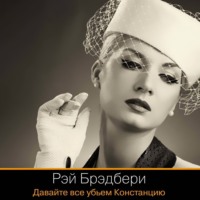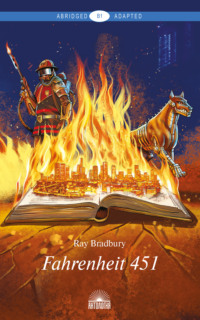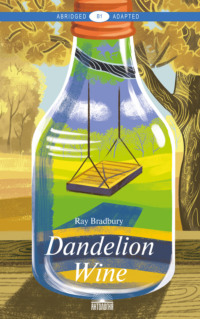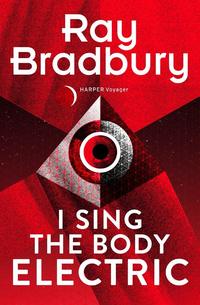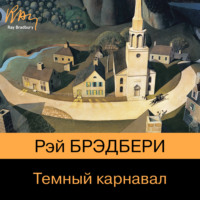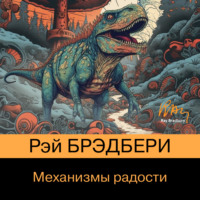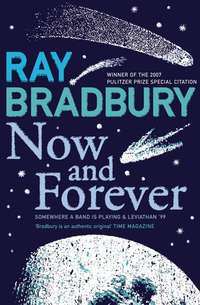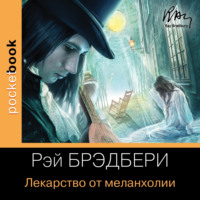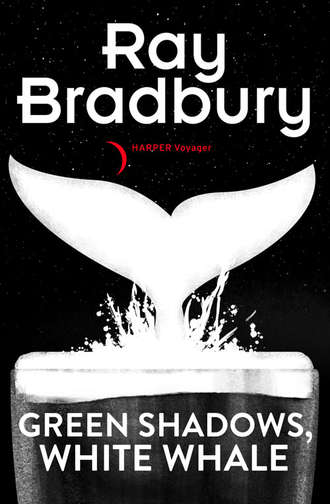
Полная версия
Green Shadows, White Whales
I glanced over at Heeber Finn. We could have switched off the lights and driven by the steady piercing beams of his forward-directed eyes snatching at the dark, flicking away the rain.
Wife, I thought to myself, children, forgive me for what I do this night, terrible as it may be, for this is Ireland in the rain of an ungodly time and way out in Galway, where the dead must go to die.
The brakes were hit. We slid a good ninety feet; my nose mashed on the windshield. Heeber Finn was out of the car.
“We’re here!” He sounded like a man drowned deep in rain.
I saw a hole in the wall, a tiny gate flung wide.
Mike and I followed at a plunge. I saw other cars in the dark and many bikes. But not a light. Oh, it must be wild to be this secret, I thought. I yanked my cap tight, as rain crawled down my neck.
Through the hole in the wall we stumbled, Heeber clenching our elbows. “Here!” he husked. “Hold on. Swig on this to keep your blood high!”
I felt a flask knock my fingers. I poured its contents into my boilers to let the steam up my flues.
“It’s a lovely rain,” I said.
“The man’s mad.” Finn drank after Mike, a shadow among shadows.
I squinted about. I had an impression of midnight sea upon which men like little boats passed on the murmurous tides, heads down, muttering, in twos and threes.
Good God, what’s it all mean? I asked myself, incredibly curious now.
“Wait!” whispered Heeber. “This is it!”
What did I expect? Perhaps some scene like those old movies where innocent sailing ships suddenly flap down their cabin walls and guns appear like magic to fire on the foe. Or a farmhouse falls apart like a cereal box, Long Tom rears up to blast a projectile five hundred miles to crack Paris. So here, I thought, will these stones spill away, that house open wide, rosy lights flash on, so that from a monstrous cannon ten dozen pink women, not dwarf Irish but willowy French, will be shot out and down into the waving arms of this grateful multitude?
The lights came on.
I blinked.
For there was the entire unholy thing, laid out for me in the drizzle.
The lights flickered. The men quickened.
A mechanical rabbit popped out of a little box at the far end of the stony yard and ran.
Eight dogs, let free from gates, yelping, ran after in a great circle. There was not one yell or a murmur from the crowd of men. Their heads turned slowly, watching. The rain rained down on the half-lit scene. The rain fell on tweed caps and thin cloth coats. The rain dripped off thick eyebrows and sharp noses. The rain hammered hunched shoulders. The rabbit ran. The dogs loped. The rabbit popped into its electric kennel. The dogs collided, yiping. The lights went out.
In the dark I turned to stare at Heeber Finn, stunned.
“Now!” he shouted. “Place your bets!”
We were back in Kilcock, speeding, at ten o’clock.
The rain was still raining, like an ocean smashing the road with titanic fists, as we drew up in a great tidal spray before the pub.
“Well, now!” said Heeber Finn, looking not at us but at the windshield wiper palpitating before us. “Well!”
Mike and I had bet on five races and had lost, between us, two or three pounds.
“I won,” Finn said, “and some of it I put down in your names, both of you. That last race, I swear to God, won for all of us. Let me pay!”
“It’s all right, Heeber,” I said, my numb lips moving.
Finn pressed two shillings into my hand. I didn’t fight him. “That’s better!” he said. “Now, one last drink on me!”
Mike drove me back to Dublin.
Wringing out his cap in the hotel lobby he looked at me and said, “It was a wild Irish night for sure!”
“A wild night,” I said.
I hated to go up to my room. So I sat for another hour in the reading lounge of the damp hotel and took the traveler’s privilege, a glass and a bottle provided by the dazed hall porter. I sat alone listening to the rain and the rain on the cold hotel roof, thinking of Ahab’s coffin-bed waiting for me up there under the drumbeat weather. I thought of the only warm thing in the hotel, in the town, in all the land of Eire this night, the script in my typewriter with its sun of the South Pacific, its hot winds blowing the Pequod toward its doom, but along the way fiery sands and its women with dark charcoal-burning eyes.
And I thought of the darkness beyond the city, the lights flashing, the electric rabbit running, the dogs yiping, the rabbit gone, the lights out, and the rain flailing the dank shoulders and soaked caps and ice-watering the noses and seeping through the sheep-smelling tweeds.
Going upstairs, I glanced out a streaming window. There, on the street, riding by under a lamp, was a man on a bike. He was terribly drunk. The bike weaved back and forth across the bricks, as the man vomited. He did not stop the bike to do this. He kept pumping unsteadily, blearily, as he threw up. I watched him go off in the dark rain.
Then I groped up to find and die in my room.
Chapter 7
On Grafton Street just halfway between The Four Provinces pub and the cinema stood the best, or so John said, Gentleman Riders to Hound emporium in all Dublin, if not Ireland, and perhaps one half of Bond Street in London.
It was Tyson’s, and to speak the name was to see the front windows with their hacking coats and foulards and pale yellow silk shirts and velvet hunting caps and twill pants and shining boots. If you stood there long enough you could hear the horses fribbling their lips and snorting their laughter and twitching their skin to jerk the flies off, and you could hear the hounds whining and barking and running in happy circles (dogs are always happy and thus their smiles, unless they are miserable because their master crossed his eyes at them); but as I say, if you stood there long enough waiting for someone to hand you the reins, the owner of the shop, seeing you as one of the blindfolded hypnotics wandered out of Huston’s Barn, might come out and lead-kindly-light your way into the smell of leather and boot cream and wool; and buckle on your new trenchcoat for you and fit on a tweed cap abristle for a thousand rains within the month and measure your pigfoot and wonder how in hell to shove it into a boot and all the while around you Anglo-Irish gents being similarly whisper-murmured at by lilting tongues; and the weather turned bad outside within thirty seconds after you set foot within, that you linger and buy more than your intent.
Where was I? Oh, yes. I stood out in front of Tyson’s on three separate nights.
Looking at the wax model, as tall as Huston and as strideful and arrogant in all his Kilcock Hunt finery, I thought: How long before I dress like that?
“How do I look, John?” I cried, three days later.
I spun about on the front steps of Courtown House smelling of wool, boot leather, and silk.
John stared at my tweed cap and twill pants.
“I’ll be goddamned,” he gasped.
Chapter 8
“You know anything about hypnotism, kid?”
“Some,” I said.
“Ever been hypnotized?”
“Once,” I said.
We were sitting by the fire after midnight with a bottle of Scotch now half empty between us. I hated Scotch, but since John relished it, I drank.
“Well, you haven’t been in the hands of a real pro,” said John, languidly, sipping at his drink.
“Which means you,” I said.
John nodded. “That’s it. I’m the best. You want to go under, son? I’ll put you there.”
“I had my teeth filled that one time, my dentist, a hypnodontist, he—”
“To hell with your teeth, H.G.” H.G. was for H.G. Wells, the author of Things to Come, The Time Machine, and The Invisible Man. “It’s not what comes out in teeth, it’s what goes on in your head. Swallow your drink and give me your paw.”
I swallowed my drink and held out my hands. John grabbed them.
“Okay, H.G., shut your eyes and relax, total relaxation, easy does it, easy, easy, nice and soft and slow and easy,” he murmured, as my eyes shut and my head lolled. He kept speaking and I kept listening, nodding my head gently and he talked on, holding my hands and breathing his mellow Scotch in my face and I felt my bones go loose in my flesh and my flesh lounge out under my skin and it was easy and nice and sleepy and at last John said: “Are you under, kid?”
“Way under, John,” I whispered.
“That’s the way. Good. Fine. Now listen here, H.G., while you’re there and relaxed, is there any one message you want to tell me so I can tell yourself? Give instructions, as it were, for self-improvement or behavior tomorrow? Spit it out. Tell me. And I’ll instruct you. But easy does it. Well …?”
I thought. My head swayed. My eyelids were heavy.
“Just one thing,” I said.
“And what’s that, kid?”
“Tell me—”
“Yes?”
“Instruct me to—”
“What, kid?”
“Write the greatest, most wonderful, finest screenplay in the history of the world.”
“I’ll be damned.”
“Tell me that, John, and I’ll be happy …,” I said, asleep, deep under, waiting.
“Well,” said John. He leaned close. His breath was like an aftershave on my cheeks and chin. “Here’s what you do, kid.”
“Yes?” I said.
“Write the damnedest, finest, most wonderful screenplay ever to be written or seen.”
“I will, John,” I said.
Chapter 9
It’s not often in the life of a writer lightning truly strikes. And I mean, there he is on the steeple, begging for creative annihilation, and the heavens save up spit and let him have it. In one great hot flash, the lightning strikes. And you have an unbelievable tale delivered in one beauteous blow and are never so blessed again.
And here’s how the lightning struck.
I had been hard at it with harpoon and typewriter for three hours out at Courtown House when the telephone rang. John, Ricki, and I had gathered for lunch and another try at trapping the pale flesh of the great Beast. We looked up, glad for the interruption.
John seized the phone, listened, and gave a great gasping cry.
“Well, I’ll be goddamned!”
Each word was exquisitely pronounced—no, not pronounced: yelled—into the telephone.
“Well, I’ll be absolutely and completely goddamned!”
It seemed that John had to shout all the way to New York City and beyond. Now, gripping the phone, he looked out across the green meadows in December light as if somehow, too, he might stare long distance at that man he was yelling at so far away.
“Tom, is it really you?” he cried.
The phone buzzed: yes, it was really Tom.
John held the phone down and shouted the same way at Ricki, at the far end of the dining room table. I sat between, half buttering my toast.
“It’s Tom Hurley, calling from Hollywood!”
Ricki gave him one of her elusive, haunted smiles and looked down again at her scrambled eggs.
“Well, for God’s sake, Tom!” said John. “What are you up to? What are you doing?”
The phone buzzed.
“Uh-huh,” said John, emphatically, listening. “Uh-huh! Uh-huh!” He nodded. “Good, Tom. Fine, Fine. Lisa, yes, I remember Lisa. Lovely girl. When? Well, that’s wonderful, Tom, for both of you!”
The telephone talked for a long moment. John looked at me and winked.
“Well, it’s the hunt season here, Tom, yes, great fox-hunting country. Ireland’s the best in the world. Fine jumps, Tom, you’d love it!”
Ricki looked up again at this. John glanced away from her, out at the swelling green hills.
“It’s the loveliest land in creation, Tom. I’m going to live here forever!”
Ricki started eating rapidly, looking down.
“They have great horses here, Tom,” said John. “And you know horses better than I do. Well, you ought to come over and just lay your eyes on the beauties!”
I heard the voice on the phone say it wished it could.
John gazed at the green fields. “I’m riding with the Waterford Hunt Thursday, Tom. What the hell … hell, why don’t you just fly over to hunt with me?”
The voice on the phone laughed.
Ricki let her fork drop. “Christ,” she muttered. “Here it comes!”
John ignored her, gazed at the hills and said:
“I mean it, be our houseguest, bring Lisa too!”
The voice on the phone laughed, not so loud this time.
“Tom, look,” John pursued, “I need to buy one or two more horses to race or maybe breed, you could help me pick. Or—”
John stared out the window. Beyond, a hound trotted by on the green field. John sat up suddenly, as if the animal were inspiration.
“Tom, I’ve just got the damnedest wildest idea. Listen, you do want to bring Lisa along, yes? Okay, pile her into a plane tomorrow, fly to Shannon—Shannon, Tom—and I’ll come to Shannon myself to drive you here to Kilcock. But listen, Tom, after you’ve been here a week we’ll have a hunt wedding!”
I heard the voice on the phone say, “What?”
“Haven’t you ever heard of a hunt wedding, Tom?” cried John exuberantly. He stood up now and put one foot on the chair and leaned toward the window to see if the hound was still trotting across the field. “Tom, it’s just the best damn kind of wedding for a man like you and a woman like Lisa. She rides, doesn’t she? And sits a horse well, as I recall. Well, then, damn it, think how it would be, Tom! You’re getting married anyway, so why not you two pagans here in Catholic Ireland? Out here at my place …” He cast a quick glance at Ricki. “Our place. We’d call in every horse in ninety miles around and every decent hunter, and the lovely hounds, the loveliest hounds and bitches you ever saw, Tom, and everyone in their pink coats—what color, Tom—and the women in great-fitting black coats, and after the marriage service you and Lisa and I would go to hunt the finest fox you ever saw, Tom! What do you say? Is Lisa there? Put her on!” A pause. “Lisa? Lisa, you sound great! Lisa, talk to that bastard! No arguments! I’ll expect you here day after tomorrow for the Waterford Hunt! Tell Tom I won’t accept the charges if he calls back. God love you, Lisa. So long.” John hung up.
He looked at me with a chimpanzee smile of immense satisfaction.
“By God now! What have I done? Did you hear that? Will you help out, kid?”
“What about Moby Dick, John?”
“Oh, hell, the Whale will survive. God, I can just see the parish priest’s eyebrows burning. I can hear the rouse in the pubs when they hear!”
“I can watch myself cutting my throat in the bathtub.” Ricki headed for the door. It was always the horses to be ridden or tubs soaked in up to her mouth at a time like this, which was usually twice a week, living with a power unit like John. “So long, lousy husband. Goodbye, cruel world.”
The door slammed.
Not waiting to hear the fierce douse of water above in the giant bathroom, John grabbed my knee.
“God almighty, it’ll be a time!” he cried. “Ever seen a hunt wedding?”
“Afraid not.”
“Christ, it’s beautiful! Damn! Beyond belief!”
I looked at the door through which Ricki had gone.
“Will Tom and Lisa come, just like that?”
“They’re both sports.”
“Am I supposed to interpret that as positive assurance we’ll see them this week?”
“We’ll go to Shannon and drive them here, won’t we, kid?”
“I thought I was supposed to rewrite the solid-gold-doubloon-on-the-mast scene, John.”
“Oh, hell, we both need a few days off. Ricki!”
Ricki reappeared in the door, her face the color of snow and lilacs. She had been waiting for the call she knew would come.
“Ricki,” said John, beaming at her as on one of his children. “Goddamn, listen—here’s the plan!”
Tom and Lisa got off the plane fighting. They fought inside the door of the plane. They fought coming out the door. They yelled at each other on the top step. They shouted coming down the steps.
John and I just looked up, aghast. I was glad Ricki was off somewhere, shopping until suppertime.
“Tom!” cried John. “Lisa!”
Halfway down the steps, Lisa turned and ran back up, raving. She was going back to the States now! The pilot, on his way out, told her there was a rather slender chance of this, for the plane was not going back immediately. Why not? she demanded. By this time Tom had bounded back up to her side, yelling at the pilot that he should indeed turn the damn ship round and fly this madwoman back, he would pay double, triple, and if he could manage to crash on the way, fine.
John, listening, sat down on the steps of the unloading platform, shut his eyes, shook his head, and bellowed with laughter.
Hearing this, Tom came to the rail above and looked down sharply. “Jesus Christ, John!”
John went up and hugged and kissed Lisa a lot, which did it. We finally saw them through customs, packed them into the Jaguar, and tooled across the vast green pool table of Ireland.
“Beautiful! Beautiful!” cried Lisa, as the hills rushed by.
“What weather!” said Tom.
“Don’t let it fool you,” John announced. “Looks lovely, but it rains twelve days out of ten. You’ll soon be at the whiskey, like me!”
“Is that possible?” Tom laughed, and I laughed with him, looking over. What I saw was what I had seen for years around Hollywood, a man lean as whipcord and leather; hard riding, tennis every day, swimming, yachting, and mountain climbing had fined him down to this. Tom was fifty-three, with a thick shock of iron-gray hair. His face was unlined, deeply tanned, his jaw was beautifully sharp, his teeth were all there and white, his nose was a hawk’s nose, exquisitely pro wed in any wind anywhere in the world. His eyes were blue, water bright and intensely burning. The fire in him was a young man’s fire, and it would never go out: he would never let it go out himself, and there was no man with an ego powerful enough to kill it. Nor, for that matter, was there a woman in the world whose flesh could smother Tom. There never had been, and now, this late, there never could be. Tom was his own mount and saddle, he rode himself and did so with masculine beauty. I could see by the way Lisa held his arm that she both angrily and happily accepted him for what he was, a single-minded man who had roamed the world and done what he wanted to do when he wanted to do it, without asking anyone and without apologies. Any woman who tried to lay tracks down for Tom, why, he would simply laugh and walk away. Now, this day, he had decided to come to Ireland. Tomorrow he might be with the Aga Khan in Paris and the day after in Rome, but Lisa would be there, and it would go on that way until someday, many years from now, he fell from a mountain, a horse, or another woman, and died at the base of that mountain, horse, or woman, showing his teeth. He was everything men would like to be if they were honest with themselves, everything John wanted to be and couldn’t quite live up to, and a hopeless and crazily reckless ideal for someone like me to admire from a distance, having been born and bred of reluctance, second thoughts, premonitions, depressions, and lack of will.
“Mr. Hurley,” I couldn’t help asking, “why have you come to Ireland?”
“Tom is the name. And … John ordered me here! When John speaks, I come!” said Tom, laughing.
“Damn right!” said John.
“You called him, remember, Tom?” Lisa punched his arm.
“So I did.” Tom was not in the least perturbed. “I figured it had been too long since we saw each other. Years go by. So I pick up the phone and call the son of a bitch and he says, Tom, come! And we’ll have a wild week and I’ll go on my way and another two years will pass. That’s how it is with John and me, great when we’re together, no regrets apart! This hunt wedding, now …”
“Don’t look at me,” I said. “My ignorance is total.”
“Lisa, here, didn’t quite warm up to it,” Tom admitted.
“No!” cried John, swiveling to burn her with one eye.
“Nonsense,” said Lisa, quickly. “I brought my hunt wardrobe from West Virginia. It’s packed. I’m happy! A hunt wedding— think!”
“I am,” said John, driving. “And if I know me, it might just as easily be a hunt funeral!”
“John would love that!” said Tom, talking to me as if John were not present, riding through green and green again. “Then he could come to our wake and get drunk and weep and tell all our grand times. You ever notice—things happen for his convenience? People are born for him, live for him, and die so he can put coins on their eyelids and cry over them. Is there anything isn’t convenient or fun for John?”
“Only one thing,” Tom added after a pause.
John pretended not to hear.
“What’s that?” I asked.
“Being alone.” Tom was suddenly serious. “John doesn’t like being alone, ever. You must never leave John alone, remember that, no matter what.” Tom looked at me with his keen, clear, bright-water eyes. “John once said to me, Tom, the loneliest time in a man’s day is the time between when he stops work and starts dinner. That single hour is as desolate as three in the morning of a long night, he said. Then is when a man needs friends.”
“I said that to you?” said John in fake astonishment.
Tom nodded. “I got a letter from you last year. You must have written it at five, some afternoon. You sounded alone. That’s why I call once in a while. That’s why I’m here. Jealous, Lisa?”
“I think I am,” said Lisa.
Tom looked at her steadily.
“No,” said Lisa, “I’m not.”
Tom patted her leg. “Good girl.” He nodded up at John. “How about giving us a road test?”
“Road test it is!”
We drove the rest of the way to Kilcock at eighty miles an hour. Lisa blinked quite often. Tom didn’t blink at all, watching Ireland loom at him in landfalls of green.
I kept my eyes shut most of the way.
There was a problem having to do with a hunt wedding. Quite suddenly we discovered that none had been held in Ireland for years. How many years, we never found out.
The second and greatest problem was the Church.
No self-respecting priest was about to show up to fuse the lusts of two Hollywood characters, although Lisa Helm was from Boston and a thoroughly nice lady, but Tom Hurley was from all the points of Hell, a cross-country horseman who played destructive tennis with Darryl Zanuck and advised the Aga Khan on the insemination of thoroughbreds.
No matter. For the Church, it was out of the question. Besides which (John had never bothered to ask), neither Tom, despite his Irish background, nor Lisa was Catholic.
What to do? There were no other churches near Kilcock. Not even a paltry small Protestant chapel you might sleepwalk in for a long Sunday noon.
So it finally fell to me to inquire of the local Unitarian church in Dublin. What’s worse than a Protestant? A Unitarian! It was no church and no faith at all. But its keeper, the Reverend Mr. Hicks, agreed, in a rather hyperventilated exchange on the phone, to assume the task because he was promised his rewards on Earth by John Huston rather than in Heaven by a God who was rarely named, so as to save embarrassment.
“Have they been living in sin?” asked the Reverend Mr. Hicks abruptly.
I was shocked. I had never heard such talk before.
“Well …” I said.
“Have they?”
I shut my eyes to focus the bridal pair, loud in the Dublin streets noon and night.
They had had a fight about one wedding ring, then another, a fight about possible flowers, a fight about the day and date, a fight about the minister, a fight about the location of the ceremony, a fight about the size of the wedding cake, with or without brandy, a fight about the horses and hounds, and even a fight with the master of the hunt, a fight with his assistant, a fight with the Courtown butler, an altercation with a maid, a carousal with the pub owner about liquor, another brannigan with the liquor merchant in town for not giving a markdown on three cases of not very excellent champagne, plus fights in restaurants and pubs. If you wanted to keep a record of the fights in one week, the best way to imprint it on the calendar was with a shotgun.


